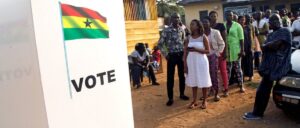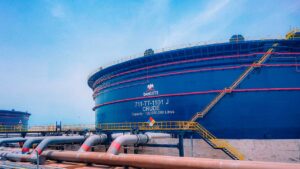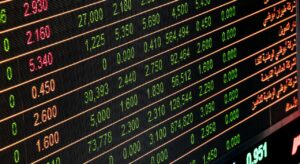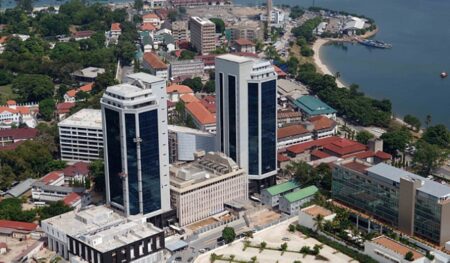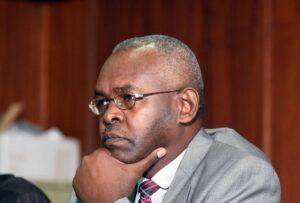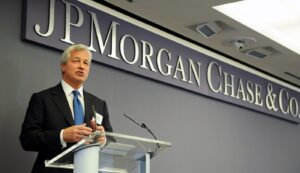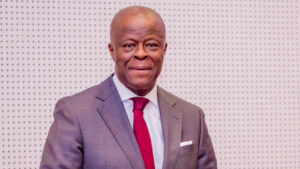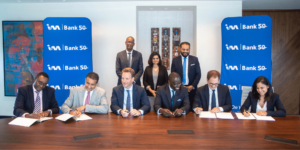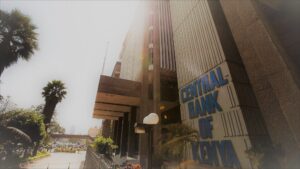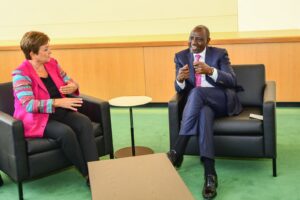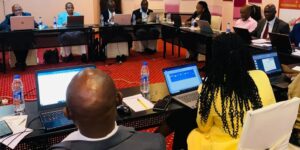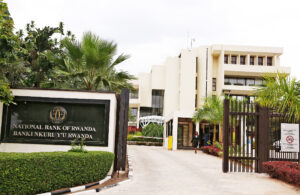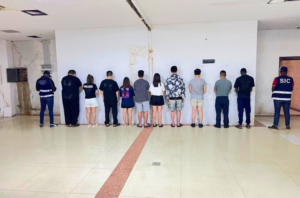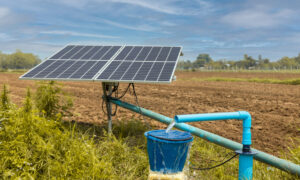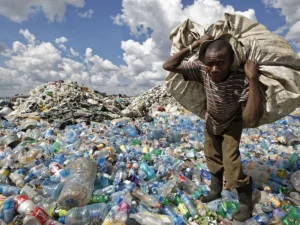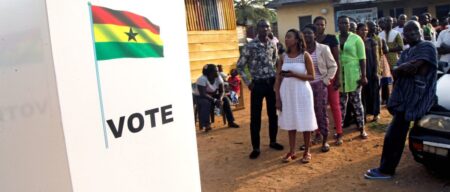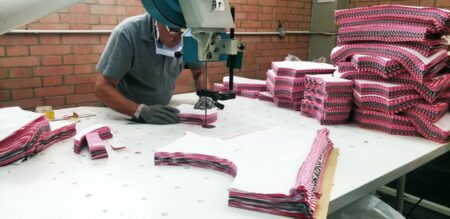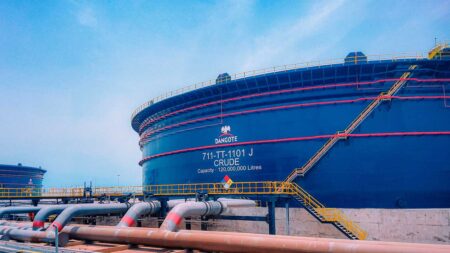- Ghana Heads to Elections Amid a Gripping Economic Crisis
- Egypt’s private sector suffers job cuts in November as optimism fades
- Inflation strains ease slightly, but Nigerian private firms cut jobs and purchases
- Money laundering: The financial cancer killing Africa
- AWS and Bboxx join forces to redefine operational efficiency with AI
- The Billion-Dollar Lobito Railway Key To Biden’ Africa Visit
- China Railway Construction sanctioned by AfDB in Tanzania airport scandal
- Acumen’s Hardest-to-Reach initiative powers d.light with $5M funding
Banking
- An INTERPOL cybersecurity operation that has arrested 1,006 suspects and the busting of 134,089 cybercrime networks in Africa underscores the urgent need for banks to fortify their cybersecurity defenses.
- The probe identified 35,000 victims, with cases linked to nearly $193 million in financial losses.
- This exposure invites the question: Are banks in Africa prepared to counter the threat of cybercrime?
The fintech revolution sweeping across Africa's economy is reshaping banking systems, offering millions of people unprecedented convenience and access to financial services. However, as banks and other financial services institutions embrace innovation, they must contend with a new and evolving threat: cybercrime.
With malicious actors continually adapting their tactics, robust cybersecurity measures are no longer optional for banks; they are critical. Take, for instance, the International Criminal Police Organization (INTERPOL's) Operation Serengeti, which has exposed the grand scale and complexity of cybercrime threats plaguing the continent's financial institutions.
Interpol Cybersecurity
- Unlike conventional bonds that generate returns through fixed interest payments, Sukuk generates returns through the ownership of underlying assets, thereby avoiding the prohibitions of Riba (interest) and excess Gharar (uncertainty).
- Global Sukuk market has witnessed significant growth over the last two decades, diversifying its presence across regions such as the Middle East, Southeast Asia, Europe, and Africa.
- The outlook for the sukuk market indicates a continued upward trend, with projections suggesting it will reach $2,160.55 billion by 2028.
Sukuk, commonly known as Islamic bonds, represent a unique financial instrument in the context of Islamic finance, distinguished by their adherence to Shariah compliance. Unlike conventional bonds that generate returns through fixed interest payments, Sukuk generates returns through the ownership of underlying assets, thereby avoiding the prohibitions of Riba (interest) and excess Gharar (uncertainty).
This Shariah-compliant structure renders Sukuk an appealing option for both Muslim and non-Muslim investors seeking ethical and socially …
- Sudan has stepped forward, increasing its pledge to $3 million in the African Development Fund.
- Sudan’s pledge aligns it with other African nations, which have each committed to raise at least $1 million to the fund by 2025.
- With backing from The Gambia, Liberia, Sierra Leone, and Ghana, Africa’s commitment to funding its key projects is strengthening.
African nations are coming together to secure a $25 billion replenishment for the African Development Fund (ADF), an ambitious target that signals a continent-wide push toward self-driven financing for projects.
In the latest update, Sudan has stepped forward, increasing its pledge to $3 million in this collective movement. With backing from countries including The Gambia, Liberia, Sierra Leone, and Ghana, Africa’s commitment to funding its development projects is strengthening.
As governments, led by the African Development Bank (AfDB), advocate for this replenishment, they set a critical precedent for financial autonomy in achieving Africa’s …
- The World Bank has approved a $2.25 billion loan for Nigeria to shore up revenue and support economic reforms.
- $1.5 billion of the loan will help protect millions who have faced growing poverty since a year ago.
- $750 million, the bank said, will support tax reforms and revenue and safeguard oil revenues threatened with limited production caused by chronic theft.
Nigerian President Tinubu’s economic reforms, including ending decades-long but costly fuel subsidies and unifying the multiple exchange rates have resulted in surging inflation that is at a 28-year high.
Under growing pressure from citizens and workers protesting the hardship, Tinubu’s government said that it was seeking the loan to support its long-term economic plans.
The government said it was also taking steps to boost foreign investment inflows which fell by 26.7 per cent from US$5.3 billion in 2022 to US$3.9 billion in 2023, according to the Nigerian Economic Summit Group …
-
- The transaction marks the successful outcome of BII and I&M’s equity partnership for over 7 years as AfricInvest takes over.
- The institution said that the sale to a like-minded investor is one of the most significant transactions in East Africa in recent years and represents a vote of confidence in the region’s financial services sector.
- It is listed on the Nairobi Securities Exchange, and the Rwandan subsidiary I&M Bank Rwanda PLC is listed on the Rwanda Stock Exchange.
British International Investment (‘BII’)
- British International Investment (‘BII’), the UK’s development finance institution and impact investor, has sold its 10.1 per cent stake in I&M Group PLC, the Eastern African banking group, to AfricInvest, a leading Pan-African Asset Management platform.
The acquisition was made through East Africa Growth Holding, a special-purpose vehicle owned by AfricInvest.
- I&M Group PLC is a leading banking group in Eastern Africa with a presence in Kenya,
-
- (CBK) retained its base lending rate at a high of 13 per cent for the second time.
- This is the highest rate in 12 years, as the apex bank continues implementing monetary policies to manage stubborn inflation.
- According to CBK data, the country’s borrowers had defaulted on about $4.8 billion as of April, the highest in 18 years, due to the tough credit market.
Central Bank of Kenya (CBK) retains high interest rates
Central Bank of Kenya (CBK) retained its base lending rate at a high of 13 per cent for the second time driving the borrowing costs in Kenya to remain high for at least the next two months.This is the highest rate in 12 years, as the apex bank continues to implement monetary policies intended to manage the stubborn inflation, which slightly increased to 5.1 per cent last month from five per cent in April.
- The base-lending
- President Ruto calls for reforms in the IMF to address emerging global challenges and seeks flexible lending instruments, equitable special drawing rights, and debt financing plans.
- He also advocates for governance reforms to better represent the Global South’s economic and demographic contributions.
- These changes are crucial for maintaining the IMF’s relevance and effectiveness in fostering stability and sustainable development.
In a rapidly evolving global economy, the International Monetary Fund (IMF) finds itself at a critical moment as President William Ruto of Kenya articulates in the latest issue of the IMF’s Finance and Development Magazine. With over eight decades of history, the IMF’s journey from supporting the gold standard to promoting flexible exchange rates and development financing mirrors the dynamic changes in the global financial architecture.
President Ruto says that the IMF has to adapt once again, highlighting four key areas for reform: lending instruments, special drawing rights (SDRs), addressing …
- Financial markets provide liquidity essential for bolstering economic growth and stability.
While well-regulated financial systems are essential for macroeconomic stability - Good financial markets are critical in channeling resources into productive investment and fostering growth.
- Strengthening judicial systems and enforcing regulations are thus central to deepening financial systems. Protecting creditors‘ and borrowers‘ rights, enforcing contracts, and establishing transparent information-sharing mechanisms are also prerequisites for financial deepening.
Financial markets play a vital role in enhancing the smooth operation of economies by allocating resources and creating liquidity for businesses and entrepreneurs. The markets make it easy for investors and traders to trade their holdings. They additionally create security products that provide returns for investors/lenders and make these funds available to those needing extra financing.
Stock market, bond market, forex, commodities, and the real estate market, just to name a few, are examples of commodities in financial markets. Moreover, they can be divided into …
- The National Bank of Rwanda has reported a surge in bank borrowers attributable to intensified awareness campaigns, and the introduction of innovative products.
- The regulator reports a 40 per cent surge in the number of depositors in commercial banks.
- However, borrowers in microfinance institutions (MFIs) and Saccos experienced a 15 per cent decline.
Rwanda’s financial services industry witnessed a remarkable uptick in the number of individuals accessing loans from commercial banks, with a 39 per cent rise recorded over 12 months ending on June 30, 2023. This surge was underpinned by proactive measures instituted by the central bank to enhance financial inclusivity in an economy historically dominated by informal and traditional savings mechanisms.
Data released by the National Bank of Rwanda (NBR) reveals a substantial growth in bank borrowers, escalating from 683,851 in June 2022 to 949,778 in June 2023. In contrast, the number of borrowers in microfinance institutions (MFIs) …
